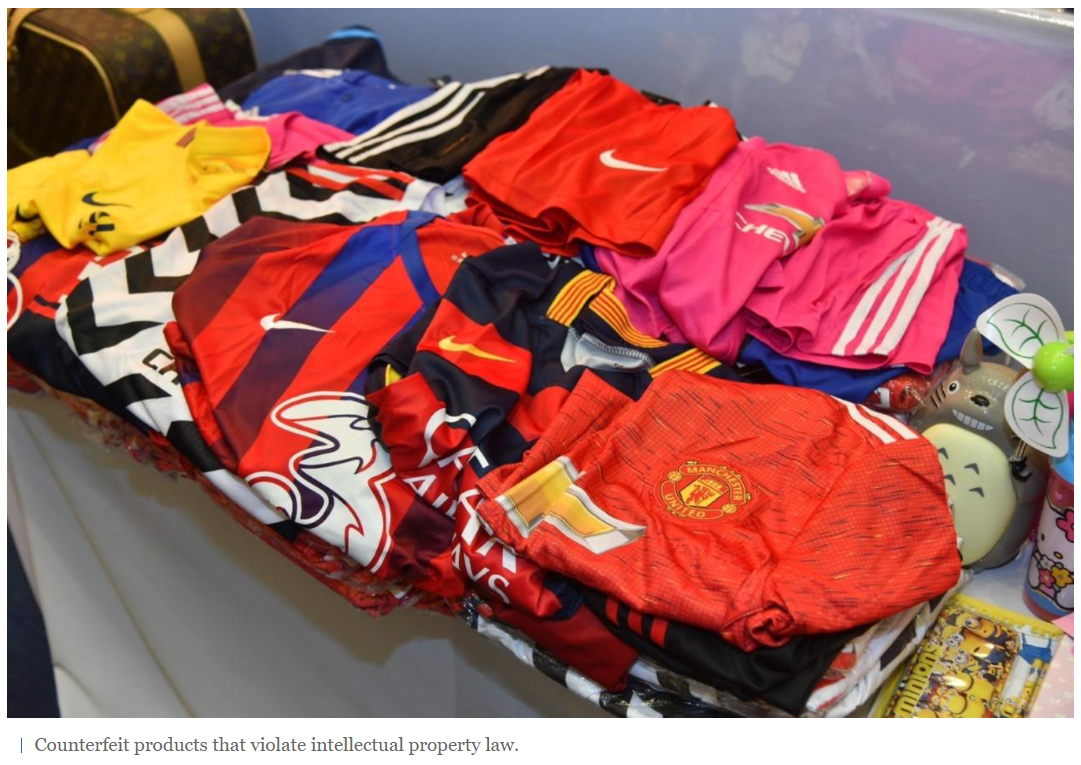Thailand: New border crackdown to protect IP
The Commerce Ministry is moving ahead with measures to prevent and suppress intellectual property (IP) infringements at border checkpoints, the latest move to build up confidence among trading partners and create a better investment environment.
The move also aims to curb the import of substandard products into the country and protect domestic consumers.
According to Deputy Commerce Minister Sinit Lertkrai, the cabinet approved at its meeting on Jan 4 a draft notification of the Commerce Ministry that stipulates pirated trademarks and products are prohibited goods for export, import, or any form of transit throughout Thailand.
Following the notification, the Commerce Ministry will work closely with the Customs Department to bar or suppress infringed trademarks and products which are exported, imported and transited through the country.
The latest attempt is expected to help increase efficiency in the prevention and suppression of IP infringement at border checkpoints that will, as a consequence, build up the confidence of trading partners in accordance with the World Trade Organization Agreement on Trade-Related Aspects of Intellectual Property Rights and the agreement on IP rights under the Regional Comprehensive Economic Partnership, which came into force early this month.
Vuttikrai Leewiraphan, director-general of the Intellectual Property Department, said that under the Commerce Ministry’s notification, owners of IP rights can directly notify the Customs Department so that customs officials can immediately inspect trademarks and products suspected of infringements.
The rights owners currently have to first notify the Intellectual Property Department, which then provides information to the Customs Department so it can launch an inspection action.
The notification will become effective 90 days from the date of publication in the Government Gazette, Mr Vuttikrai said.
Under Section 20 of Thailand’s Export and Import of Goods Act and its amendments, those who export or import prohibited and violated goods will be liable to a term of imprisonment not exceeding 10 years or to a fine equivalent to five times the value of exported or imported goods, or to both, and the goods, including containers and vehicles used in connection with the transport as well as vehicles used in the haulage, will be confiscated.
Commerce Minister Jurin Laksanawisit said earlier, via video at the launch of the Global Innovation Index 2021 organised by the World Intellectual Property Organisation in Geneva late last year, that IP will be used as one of the key tools to help boost international trade and revitalise the economy.
Another key mission of the Commerce Ministry is to promote Geographical Indications (GI) to enhance the life quality and well-being of local people.
GI is a distinctive certificate used to identify a product as originating from a particular country, region or locality that has a specific quality, reputation, or other unique characteristics.
The certification of unique characteristics and quality can often increase products’ market value in developed countries.
Source: https://www.bangkokpost.com/business/2246535/new-border-crackdown-to-protect-ip


 English
English





